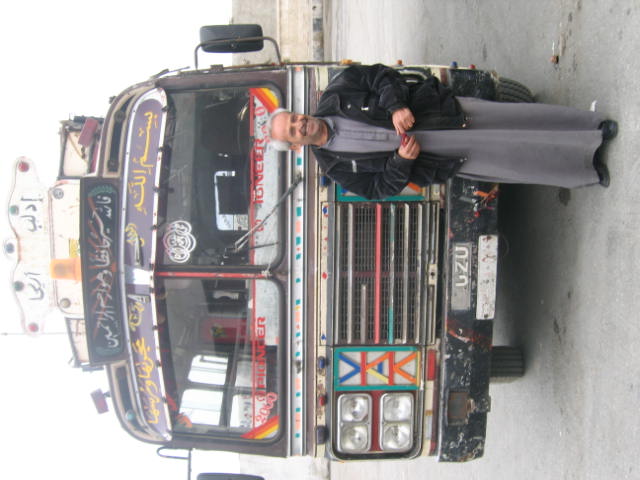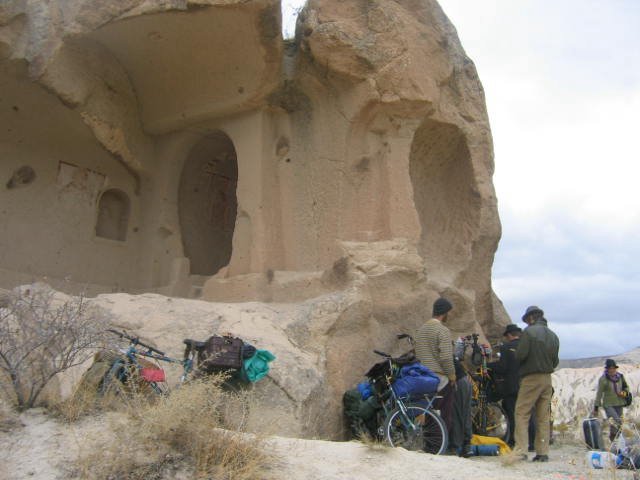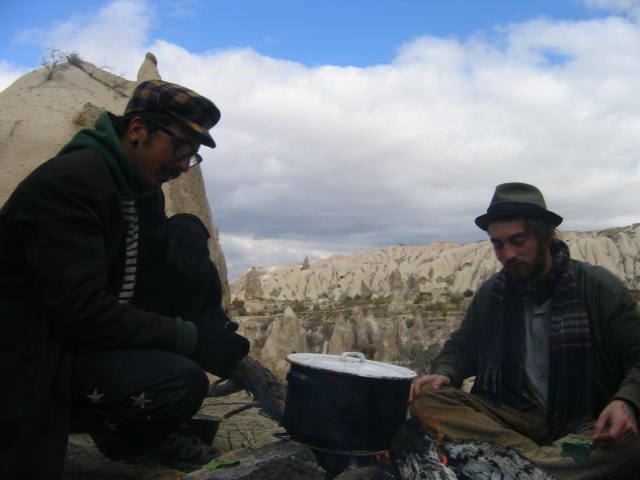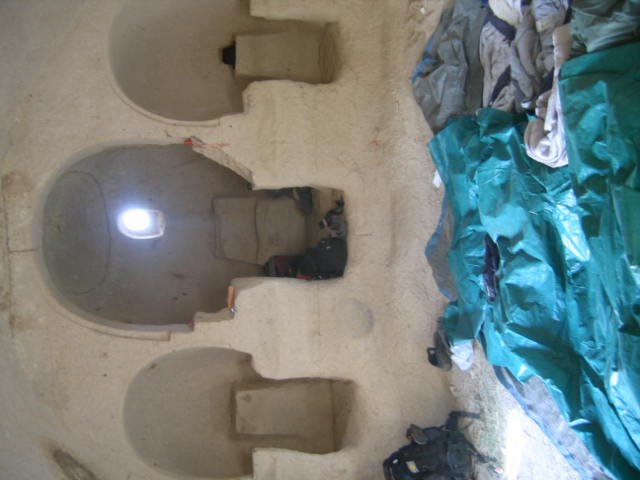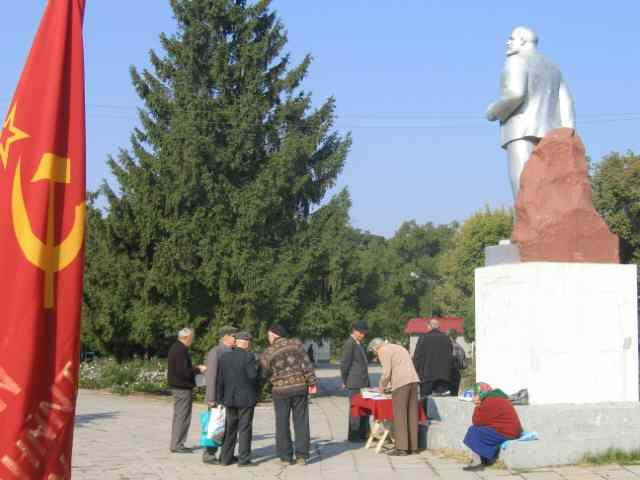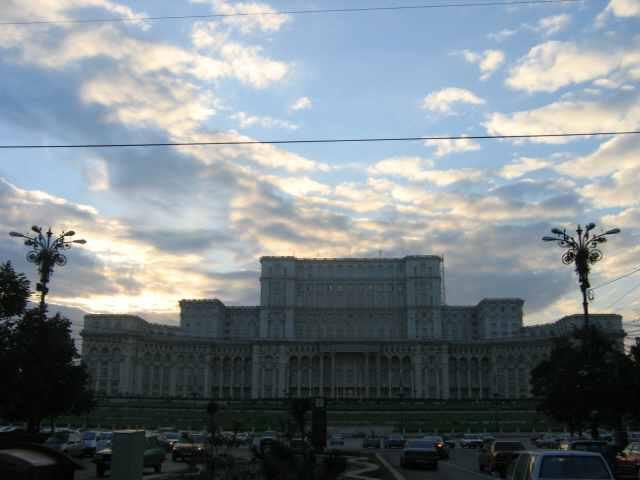


In Al Fruglos town, the officers that had hosted me the previous night, sent me in a car to Palmira. ¨Dessert¨ in Arabian is ¨sahara¨, and that is all there as far as one can see. After staring at the vacum of the dessert, one can understand the fact that it was the Arabs who invented number zero...that is, an empty whole as concept. Orange rounded-nose Mercedes trucks roundgo around that vast territory carrying oil. Sometimes, beduin camps or military bases delete the "end-of-the-world¨ effect, till one gets to Palmira.
Palmira has granted a rest to travellers since the times when caravans carrying silk and species from China made a halt at the oasis when going towards the Mediterranean. Its greatness coincided with the Roman colony period, still witnessed by 50 hectareas of ruins, temples and columns as nowhere else in the ex Roman World. The first night I slept in the ruins, in the area where the caravans used to leave their goods, called the Agora. Even though the tent was completelly hidden between two columns, I woke up with four local workers amazed at the view and an Austrian tourist taking pictures to me.
Tourists get no farther than Palmira, but Route 7 is faithful to the dessert until Deir ez Zor, on the Eufrates River, the river that triggered civilization. In 25' a Volvo truck gave me a lift. It was carrying Argentinian corn to Irak. While the truck driver was whispering the Arab song from the stereo as if he were a japanese in the middle of hara-kiri, I remembered the times when when back in my own country I used to travel in ocean-bound trucks carrying that same corn for export. Finally, I can watch the second part of the movie.
My travel book (writen by people who studied but never left Harvard) state that the only possible way to make contact with beduins is through a travelling agency, but reality shows something thoroughly different. The very moment I left the route, they approached me and welcomed me and took me to their tents. The arquetypical beduin has a rifle in his hand- for protection-and a coffe in the other-to offer travellers. Times have changed, and beduins have changed their caravans for their trucks, but hospitality is intact, kicked off by beduins´s dependency on each other while living in the dessert.
Outside our tent, a generator snorrs in the early-dessert night (5 pm), feeding the satelite TV inside. I was told to sit- on the floor, of course- next to the father of 8 brothers of the family. Soon, tea, bread and melted sheep fat were brought. Only after that, we started chatting, in a Arab, so it was very choppy. Sometimes we used drawings to clarify what had been the topic for the previous 5 minutes. Then, they asked me what I was doing, and I told them about my trip. I thought that if beduins did not congrat me for moving in a tent aroud the world, then nobody would ever do it.
So, I was moving around with a tent? They demanded to see the tent inmediately. Hasen got inside the tent and, after ordering his wife to do the same, decided that it was too small for him. The rest of brothers and wives laughed. They asked if I had a family. I told them yes. And, then they said, if i had a family, what the hell I was doing walking in the middle of the Syirian Desert? It was something that they could not understand.
They wanted to know the names of my brothers and sisters, and they repeated them as their tongues allowed them to, calling Fernanda as "Ferlanda", so as not to mention my new brother Casandro. But they were happy repeating "ferlanda, ferlanda" as if they found in that word a mysterious phonetic charm. Beduin families are more jumpy-around than average reserved Syrian families. Their most lively feature are the wives' colorful dresses, who sometimes show facial tatoos.
It is curious, they never made explicit their hospitality towards me. They never said: "Ok, if you wish you can sleep here". That was clear. On the contrary, I was straight forwardt asked to stay for three nights, which were great, forget the father waking up at 5:30 yelling his prayers to Allah.
In the morning I could appreciate the three tents and the truck with which every 6 months they alternate between Hasakeh and the Desert, to feed their sheep. The second day I saw how they made the seat for a donkey, and later visited some other tents. Some of the questions these people asked me left me without a comeback, for instance, how much is a woman in Argentina. And they asked for the price in dollars! They refered to the sum of money that the bride's father must be given before getting married.
Finally I got to Deir ez Zor, just on Friday, when their market is full with colorful beduins that come here to sell their products. The first night I slept in the hospital. Curiosity made doctors forget their duties and prolonged life to the dying that did not want to loose the scene. Then, I went to the only Syrian bank in the area, which was an experience I will never forget. There was a bold employee inserting money in a counting machine. As some baknotes were so torn, they flew away and got to the faces of the client keen on depositing that money. Behind, some women type letters in electric writing machines. Oh! I wold open an account on the bank just to receive a realy and wamheartly typed welcome letter. Now i am going to the bazar, I want to find somebody to sew my boots. After seven months they are starting to show the scars. And the Desert only starts.
In the morning I could appreciate the three tents and the truck with which every 6 months they alternate between Hasakeh and the Desert, to feed their sheep. The second day I saw how they made the seat for a donkey, and later visited some other tents. Some of the questions these people asked me left me without a comeback, for instance, how much is a woman in Argentina. And they asked for the price in dollars! They refered to the sum of money that the bride's father must be given before getting married.
Finally I got to Deir ez Zor, just on Friday, when their market is full with colorful beduins that come here to sell their products. The first night I slept in the hospital. Curiosity made doctors forget their duties and prolonged life to the dying that did not want to loose the scene. Then, I went to the only Syrian bank in the area, which was an experience I will never forget. There was a bold employee inserting money in a counting machine. As some baknotes were so torn, they flew away and got to the faces of the client keen on depositing that money. Behind, some women type letters in electric writing machines. Oh! I wold open an account on the bank just to receive a realy and wamheartly typed welcome letter. Now i am going to the bazar, I want to find somebody to sew my boots. After seven months they are starting to show the scars. And the Desert only starts.




